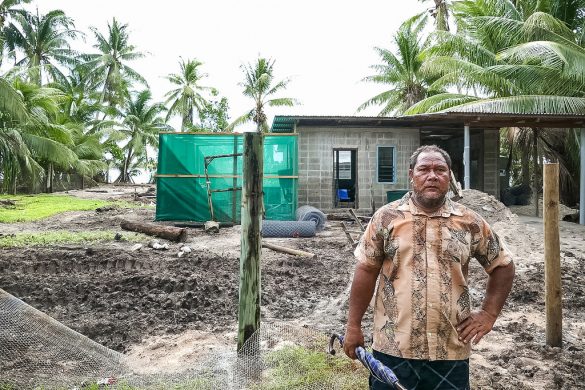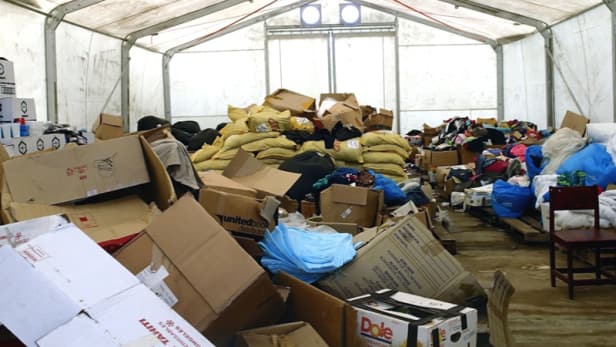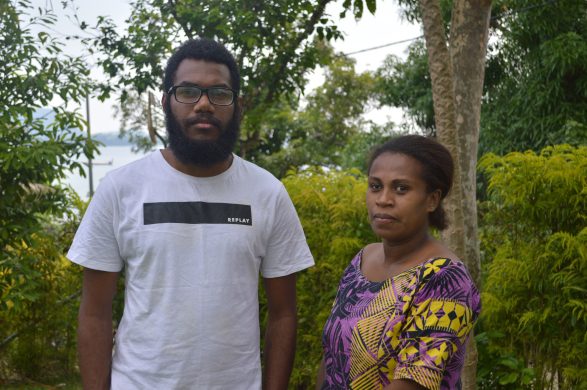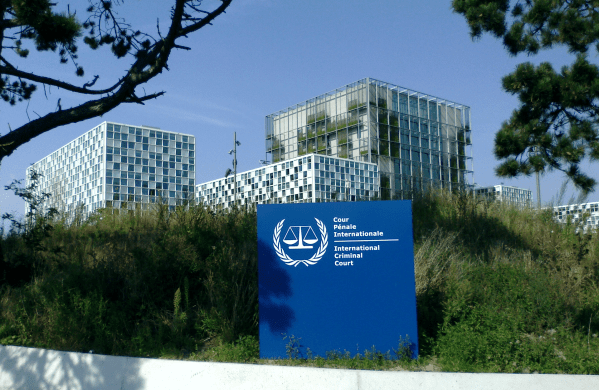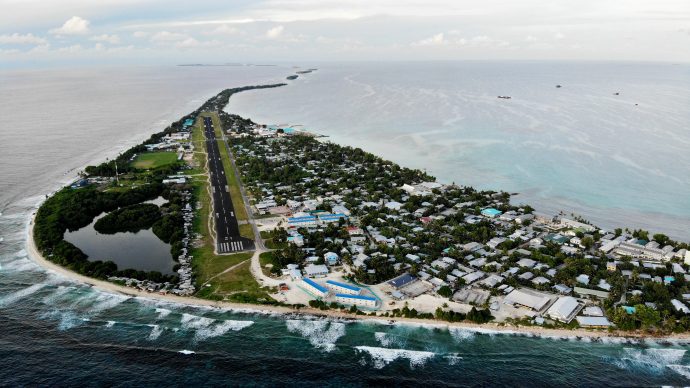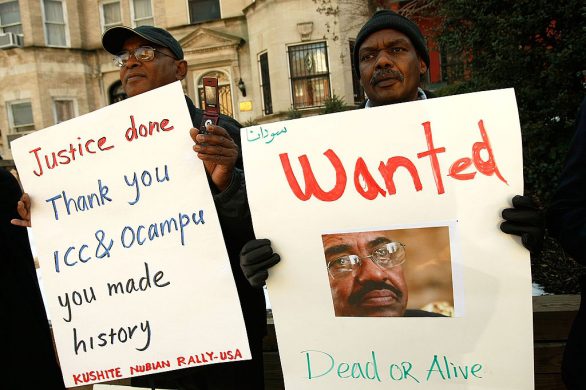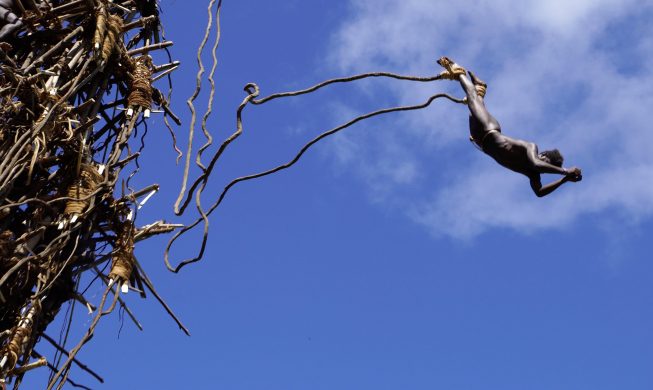GENEVA, 2 August, 2016 (IFRC): They call it the most disaster-prone country on earth: a scattered collection of islands in the Pacific Ring of Fire, beset by tropical cyclones, floods, droughts, earthquakes and volcanic eruptions.
Yet Vanuatu, like 70 per cent of countries across Asia and the Pacific, does not have comprehensive laws in place to guide international disaster assistance and response.
Disaster law is a complex and emerging field, frequently overlooked by both governments and humanitarian agencies. Yet the absence of a legal framework can compound the suffering of communities when disasters strike.
20.000 hjem blev ødelagt
Enter Cyclone Pam in March 2015, one of the worst disasters to hit the Pacific in recent history.
Winds at 270 kilometres an hour tore houses apart, while flash floods and storm surges inundated what was left. More than 200,000 people were affected and 20,000 homes ruined across the country.
Fortunately, the official death toll of 11 was minimal, given the size of the disaster, attributed to the strong preparatory work that the National Disaster Management Office (NDMO) had done investing in early warning and community preparedness measures.
The international response was large, and unprecedented, with five national militaries and over 100 international organisations responding, making good coordination a recurring need.
Reports soon emerged of organisations operating on their own, some families receiving aid while their neighbours were overlooked, or of multiple agencies carrying out assessments in the same community.
Stoppede hjælpearbejdet for at få styr på det
To regain ownership of the response, the Vanuatu Government acted decisively and temporarily halted all aid distributions to ensure greater cooperation and communication.
While international organizations bring crucial expertise and experience, unless they work with affected governments in a coordinated way, humanitarian response can lose its effectiveness.
It is in such instances when Disaster Law can play a strengthening role in legally embedding the necessary frameworks for harmonising a response of such epic proportions.
Whilst the Government of Vanuatu deserves praise for their efforts and leadership in the wake of Tropical Cyclone Pam, disasters such as these offer a wake-up call for countries to reflect on areas for improvement and consolidation.
Although the legal and policy framework governing disaster response in Vanuatu has been long identified as an area for improvement, the National Disaster Act has renewed spotlight for reform to reflect current reality and challenges.
“It needs to be updated to enable the government to be better prepared for the common legal problems related to emergencies and international assistance,” says Wojciech Dabrowka, Regional Disaster Management Advisor, ACC, working alongside the NDMO when the cyclone struck.
Vanuatu Red Cross and IFRC were considered a valued partners in the response, and it was from this trusted position that they were again enlisted by the NDMO into the Legislative Review process in June 2016, with IFRC Disaster Law delegates to facilitate this process.
The review team brought together a broad range of stakeholders including; the NDMO, Vanuatu Humanitarian Team, Red Cross, UN agencies and representatives of national, provincial and community-level government, their aim to identify what had been learnt from Cyclone Pam and how this might strengthen the Disaster Act, building on best regional practice and drawing on IDRL recommendations.
Hvornår skal landet bede om hjælp?
Key recommendations emerging are to formalise Vanuatu’s process for requesting and accepting international assistance based on national needs, clearly-defined roles for the National Disaster Council and NDMO, registration of all relief agencies entering the country, line ministries and government departments developing standard operating procedures for specific hazards and the formalisation of the Government led cluster system in Vanuatu’s law; all aspects that can lead to a more enabling environment for responding humanitarian partners.
“Vanuatu is being brave,” says Wojciech, “embedding the Government-led Cluster system as part of the humanitarian architecture into legislation is an unchartered territory. If Vanuatu could get these changes through and adopt the legislation, it would create a very exciting precedent and show a way forward for the rest of the Pacific.”
Disaster law does more than regulate disaster response; it also helps a country prepare for disasters yet to come through familiarisation.
Augustine Garae of Vanuatu Red Cross explains, the review of the Act must coincide with public education.
“People across the country must understand what this Act means, right down to the provincial and community level. We need the immigration department, customs and international providers of assistance to be across it, and what it means for them.”
The goal of a robust legislative environment for disaster management is getting closer as the Government moves into final drafting of recommendations to submit to the State Law Office, who intends the laws to be passed before the year’s end. Watch this space!
The Legislative Review of Vanuatu’s legal framework for disasters was led by the National Disaster Management Office, supported by the International Federation of Red Cross and Red Crescent Societies and funded by the World Bank.

